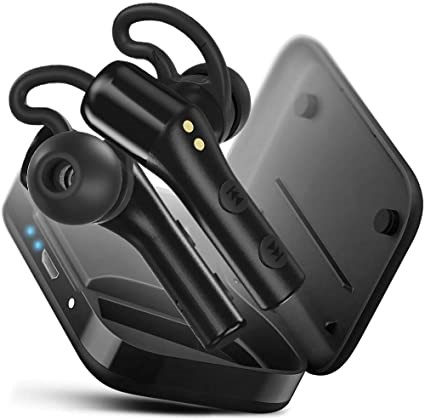Wireless headphones vs True wireless earbuds: what to choose and why
When selecting earbuds, we normally pay attention to the following criteria: light weight, compact size, comfort for ears, decent sound quality, stylish design, reputable producer, affordable price. Wireless models also should charge fast, feature a long playtime, and be compatible with diverse devices. The available assortment is so vast that it might baffle us. Below, you’ll find useful tips on how to select nice reliable earbuds and decide whether you’ll need to sacrifice certain aspects or not.
True Wireless Technology: Advanced and Nearly Invisible
Remember the times when we had to choose between wired earbuds vs headphones. Headphones were bulky but delivered a much better sound quality. Earbuds were smaller and sleeker but delivered poor and unnatural sound. Fortunately, this opposition is not relevant anymore.
Headphones used to prevent the outside sounds from interfering with your music thanks to passive noise control. Due to their large size, they physically insulated your ears with padded cups. Modern compact earbuds solve this problem with active noise cancellation technology that eliminates the outside sounds by applying the acoustic principles. An earbud fits snugly into your ear canal and efficiently blocks the unwanted noise.
Using the first generation of wireless models, we had to compromise on the quality of sound. Before transmitting tracks via Bluetooth, the device had to compress them, which led to a lower resolution. Today, if both the earbuds and the device support high-quality codecs, there is no need for compression. Powerful drivers that are built in modern earbuds allow you to enjoy both the bass and high frequencies just as smoothly as if it were your good old headphones.
When shopping for earbuds, you’ll need to choose between wireless hedphones and true wireless models. The difference between them lies in the connection between the earbuds. With the standard wireless technology, the headphones connect to a device via Bluetooth, without using a wire — but the earphones are connected with a cord between themselves.
The true wireless approach suggests that the earbuds look like two small drops that are not interconnected. It doesn’t tell on the characteristics of the sound but offers you a greater comfort by eliminating an unnecessary element from your head and neck area. However, some customers consider it as a disadvantage: it’s too easy to lose true wireless models during an intense workout. This is probably the only significant drawback of this technology.
Top-notch Sound and Unlimited Freedom
If you wonder what are the best true wireless earbuds, have a look at Treblab X5.
They are equipped with advanced 8.2mm drivers and deliver crisp stereo-quality sound. To maximize your comfort and security, they feature many-sized silicone ear tips and anti-fall ear fins. After you charge these earbuds for just 2 hours, their playtime will last for over 35 hours. Using a portable charging case, you can recharge them up to 4 times.
This model is weather-resistant and features an in-built mic for hands-free calls. It is compatible with all iOS and Android devices and maintains a stable connection with them within a 33ft range. To establish this connection, the earbuds use an in-built updated Bluetooth 5.0 chip. If you want to buy just one pair of earbuds, consider Treblab X5 as a universal model that will fit any location and activity.
Conclusion
Hopefully, this article came in handy and your choice of earbuds will be informed and conscious. Even the tiniest models today are capable of producing impeccable sound, and you’ll feel comfortable while wearing them. True wireless technology is a meaningful achievement that expands our freedom of movement — so let’s make good use of it!




